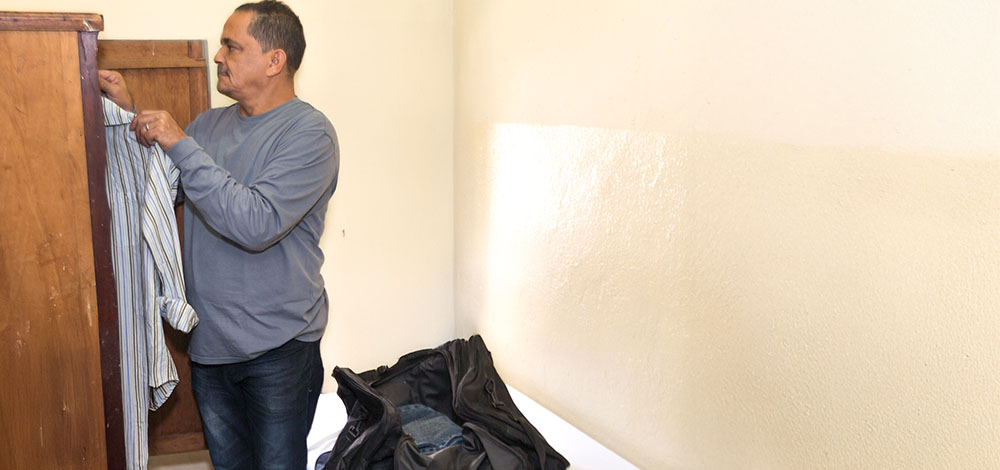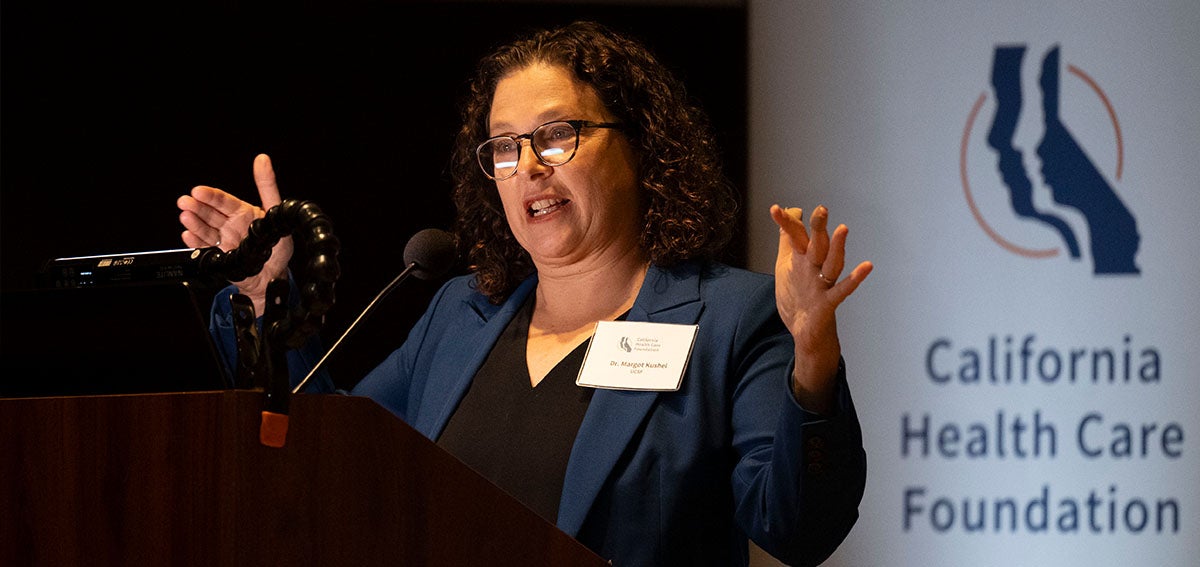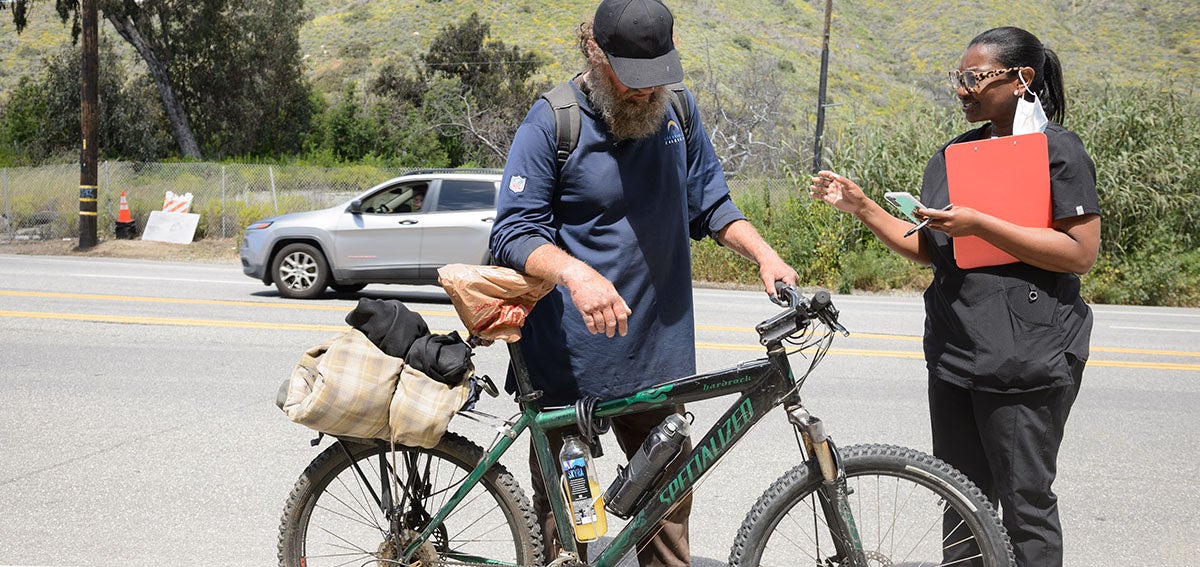View the Report
Jump to All Downloads & LinksOver 70 homelessness and health care experts converged last fall to exchange ideas and spotlight innovative programs to help people experiencing homelessness. The gathering in Oakland was part of the Partnerships for Action: California Health Care & Homelessness Learning Collaborative (P4A) — a two-year pilot initiative created by CHCF and the Center for Health Care Strategies.
P4A encourages cross-sector collaboration through eight pilot projects in communities across the state. It also helps pilot teams maximize opportunities under CalAIM and Providing Access and Transforming Health to better serve people experiencing homelessness. Also, P4A disseminates best practices in addressing health care and homelessness across California and nationally.

Building Effective Partnerships
At the two-day meeting, participants discussed how differing systems, structures, working styles, and expertise can affect collaborating in P4A pilots. When collaborating across sectors and organizations, panelists offered these recommendations:
- Don’t complain about other organizations unless you’ve worked there for a day.
- Discuss shared vision early to get on the same page.
- Build relationships through informal get-togethers, like going out for coffee.
The Importance of Lived Experience
Centering lived experience is core to P4A projects. Cardea Health, in Alameda County, is a member of one of the eight project teams. Staff shared how they use harm reduction approaches informed by their own experiences to engage transitional housing residents in substance use disorder services. Panelist Jahmal Ironcoat Muhammad-Khan described people’s frustration when they feel powerless. “The most important thing is keeping people above ground. Let judgments go,” he emphasized.
Lived experience also brings acceptance that recovery isn’t linear. “We never give up,” said Muhammad-Khan. A “Fireside Chat” with consultants Lawrence Lincoln and Jennifer Oakley powerfully reinforced this point. Both speakers had previously experienced homelessness, and they shared successful outreach strategies from their time on the streets. Oakley, who was housed after a serious health crisis, later launched a nonprofit to help those experiencing homelessness and gives back through her work as a case manager.
Lincoln described his journey to self-care after an emergency room doctor listened and a team regularly checked on him. He said, “The team was so devoted that I thought it would be rude to keep using.”




